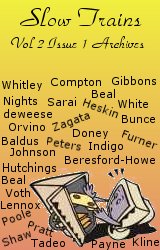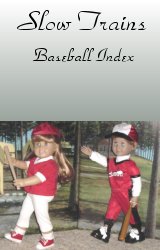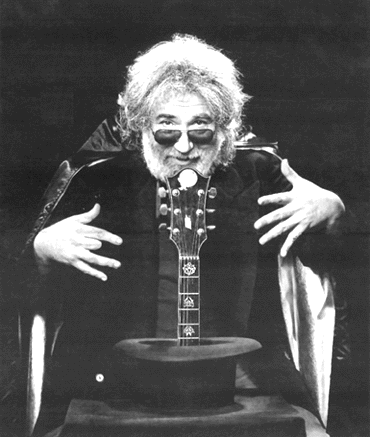
|
He was a lot of different things. Yin and yang doesn't even begin to cover it. He had a smile that could fill your heart with joy and love and he could play the guitar just like that smile. You hear that he was addicted at one time or another, or even all at the same time, to heroin, coke, alcohol, sugar and junk food. He was a musician who believed fervently in music and played it like he meant it his whole life, kissing off commercial pressures to do otherwise, sticking with a band that didn't make serious money for over twenty years. He was a workingman in the tradition of his father, who played in swing bands, and his grandmother, a union maid. He was also a rock star with a multi-million dollar home in the richest county in the country and he made a lot of money designing neckties he freely admitted he would never wear. He lived through tragedies. He was in an auto accident in which he lost his closest friend -- "the guy in our circle who really had talent" -- and he lost Pigpen -- "the Grateful Dead was his band" -- to alcoholism. He watched his father drown in a river on a fishing trip. Despite -- or perhaps because of this -- he was unsurpassingly reckless with his own life and at the same time affirmed life on an almost religious level. He was the leader of a band of people derided as flower-power, see-no-evil hippies, but anyone paying any attention to him figured out pretty quickly that he wrote and sang with intense personal knowledge of the darkest recesses of the human spirit. He was a man who took his sweetness and light carefully, cautiously and suspiciously. "Every silver lining's got a touch of grey," a line from his writing partner Robert Hunter, couldn't be a more perfect way of describing the way he seemed to live. He probably performed more big-time rock shows -- along with the other 30-year members of the Dead, Phil Lesh, Bob Weir and Bill Kreutzmann -- than any other human being on the planet, yet he was a man afflicted with stage fright. He led a family unsurpassed in the rock "industry" for it's loyalty and commitment to it's workers and fans, but he had four children by three different women; the first of those children basically didn't even know him until he was an adult. Here's what I remember. I remember being a twenty-year-old kid from a fucked-up suburban family and deciding to go check out the Grateful Dead one day. I showed up at the Oakland Auditorium and ended up, by virtue of ignorance and luck, hanging out on the rail in front of Jerry. For most of it, I just didn't get it. All I could see and hear was a maelstrom of electricity and screaming and energy and power. Until "Wharf Rat," a song, of course, that I had never heard before. But it turned out to be what I'd been looking for my whole life -- a frank confession of otherness and loss, a mixed-up and confusing story with no easy answers, but shot through with redemption and hope. The fact that hope was of dubious value made it even better, even truer. Jerry Garcia changed my life. He helped me find spirituality and sexuality and joy and hope and at the same time made cynicism and despair seem like rational choices. I'll never be able to thank him enough. I'll never forget him. I'll never forgive him, either. And I will spend the rest of my life finding ways to celebrate him, because honest celebrations are what he lived for, and he deserves no less.
© 1995/2002 by Jeff Beresford-Howe
Jeff Beresford-Howe is a writer living in Oakland. Read more of his work in Bob Dylan: An Appreciation of How He is Now and Standing Up Against the Yankees.
|
| Home | Contributors | Past Issues | The Ten | Links | Guidelines | About Us |

|
|
 Slow Trains, Volume 1 in print Slow Trains, Volume 1 in print
|
 |
 |

|
